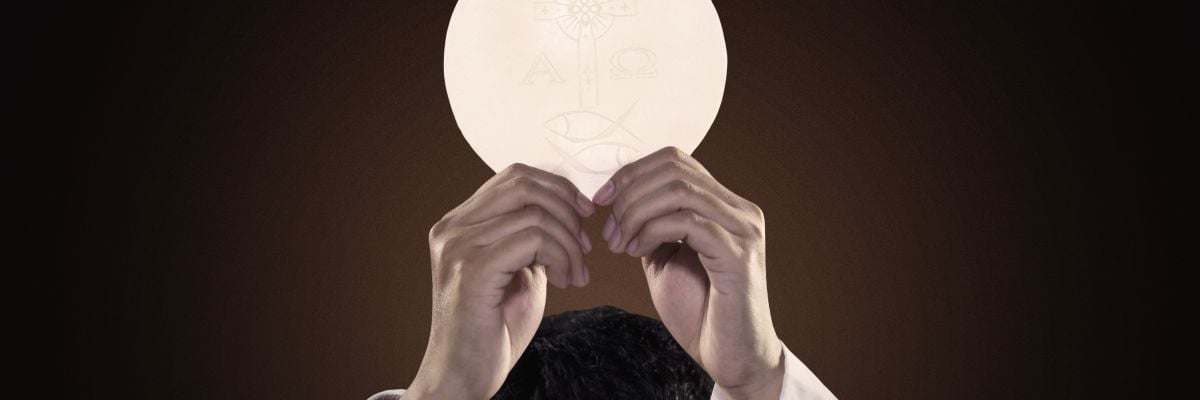
Question:
Answer:
The charge of cannibalism is not new. Roman pagans called early Church Christians cannibals precisely because the disciples spoke of eating and drinking their God. In doing so, the pagans provide further evidence that belief in the Real Presence of the Eucharist is an ancient Christian doctrine, and that the first Christians understood Jesus to be speaking literally when he established at the Last Supper the ritual we have come to call the Mass.
Yet the charge of cannibalism is misplaced. Cannibalism, simply put, is the eating of human flesh, typically after a person has died. A corpse (dead body) is usually present, or at least a dead body part. Second, the quantity of the flesh diminishes as it is being consumed. Third, digesting flesh results in physical nourishment, protein included.
In the banquet of the Eucharist, however, Jesus is not dead but is a living sacrifice. Second, his substance is not diminished by consuming the Eucharist. To the contrary, Jesus is bodily in heaven, seated at the right hand of the Father, though his body becomes miraculously present wherever the Eucharist is celebrated. Third, the eating of his Body and Blood does not result in practical physical nourishment on a natural level, although some have miraculously subsisted solely on the Eucharist. The purpose of the Eucharist is to provide spiritual nourishment.
In summary, cannibals consume the flesh of a dead person in a way that diminishes and profanes the corpse. Through the sacrament of the Eucharist, Jesus freely gives himself to us; and we consume his living body, blood, soul, and divinity in a way that mysteriously and miraculously does not diminish him but instead enhances our spiritual life.
For more on how receiving the Eucharist is not cannibalism, please see Tim Staples’ article on John 6.
[1] Father Peter Stravinskas, The Catholic Response (Huntington, Ind.: Our Sunday Visitor, Inc., 1985), 91.



